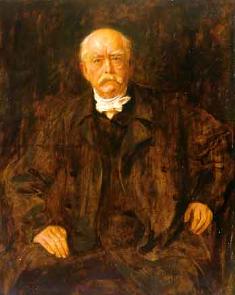© 2006 All Rights Reserved. Do not distribute or repurpose this work without written permission from the copyright holder(s).
Printed from https://danginteresting.com/the-reporter-who-out-spied-a-spy/

Summer 1878: With the end of the two-year Russo-Turkish War, the countries of Europe gathered at the Congress of Berlin to discuss and resolve outstanding issues from the conflict. This conference culminated in the signing of the Treaty of Berlin, which was to take place on June 22.
It was not too unusual a meeting; however, there was one very specific special concern. Everyone present was aware that at the Congress there was a potential security threat, one no one had very much chance of being able to stop. This was a man by the name of Henri de Blowitz. For most of those at the Berlin conference, he would be harmless and amusing at worst. He was just a reporter, and one for a respected British newspaper at that. What sort of damage could he possibly do?
However, for German national leader (and “Iron Chancellor”) Otto von Bismarck, Blowitz’s undetected presence almost certainly meant major trouble. There were some things he didn’t want exposed in the way that de Blowitz was notorious for doing.
De Blowitz— a Bohemian, and later a naturalized French citizen— was not first a spy, but a journalist. He had, however, an “uncontrollable desire to get to the bottom of sensational reports” and get them to press ahead of everyone else. To ensure this, he developed very clever methods of eavesdropping and otherwise gaining access to information. The chief Paris correspondent for the Times of London since 1873, de Blowitz was already widely notorious for having exposed an 1875 German plan to attack France and for uncovering an internal conspiracy against the latter in 1877. He considered it a responsibility he had to his profession.
Bismarck was all too aware of de Blowitz— more importantly, of the reporter’s interest in getting to the Treaty and giving it to the entire world to see. Already he had somehow managed to report day after day of the Congress of Berlin to the Times— and in astonishing detail. This was disturbing to Bismarck since secretly he wished to dramatically redraw certain European borders, and could not afford to see his reputation compromised. Which, if de Blowitz were able to leak the Treaty, would surely be what happened— not so much because of what the Treaty contained, but due to Bismarck’s perceived incompetence at dealing with the audacious journalist.
It was looking more and more likely, however, that this would be exactly what was going to occur. Although Bismarck had called upon Wilhelm Stieber, his esteemed and trusted director of intelligence, there had been no success whatsoever in finding any trace of de Blowitz. Nor had anyone come across any potential tools or accomplices de Blowitz could be using. It was a maddening enigma.
Without the slightest idea of how to adjust the situation in order to keep de Blowitz out, and with time an understandable restriction, the treaty’s signing went ahead as planned. Meanwhile, de Blowitz outdid himself. Not only was the entire text of the Treaty published in the Times, but it was virtually instantaneous. The document had barely even been signed by the time it appeared in the press.
How was it all done? This was not discovered until much later, when it was revealed that the reporter did have a contact inside the conference after all. De Blowitz had been able to ensure that this man had been associated with the Congress before it even began.
But there was a problem with this theory alone: these two men had never been known to interact. There also was no exchange of information via mail or telegraph to be seen. How had the two men communicated?

As it turns out, there was an intricate plan behind it. Every day during the Congress, de Blowitz and his inside-man would eat the at the same Berlin restaurant, at roughly the same time but independently. Having entered, each of the two men would hang his hat by the entrance. The two hats were virtually indistinguishable; as de Blowitz left, he would simply pick up the one that the other man had brought in. Messages and details for the reporter were placed in the hatband every day.
This daily hat-swapping continued daily through the time the men were in Berlin. So careful and subtle was de Blowitz about it all that the Congress concluded without Stiebler having the tiniest clue as to how he had managed to do it. Bismarck was undoubtedly annoyed if not downright infuriated. Meanwhile, this accomplishment helped secure de Blowitz a place among the most celebrated journalists of the nineteenth century.
© 2006 All Rights Reserved. Do not distribute or repurpose this work without written permission from the copyright holder(s).
Printed from https://danginteresting.com/the-reporter-who-out-spied-a-spy/
Since you enjoyed our work enough to print it out, and read it clear to the end, would you consider donating a few dollars at https://danginteresting.com/donate ?